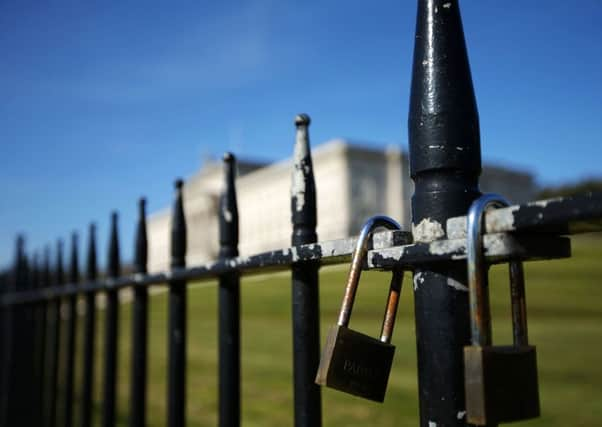Sam McBride: With civil service rule now in place, direct rule a small step


However, in interpreting what each party to the talks is publicly saying we need to remember that their public statements are as much a part of the negotiation as what is said within Stormont House.
Thus, the ‘bring it on’ bravura behind Sinn Fein’s weekend announcement that it will not form an Executive is reminiscent of Arlene Foster bullishly telling Martin McGuinness in January that he may be “playing a game of chicken” by calling for her to stand aside over the RHI scandal and that the DUP was relaxed about facing the electorate.
Advertisement
Hide AdAdvertisement
Hide AdJust hours later, Mr McGuinness called her bluff by collapsing Stormont and precipitating an election which even at that point must have been unwanted from the DUP’s perspective.
But just because what Mr Adams is saying may be a bluff doesn’t mean that it necessarily is.
Sinn Fein arguably has a mandate for its obduracy. Nationalism responded to an election campaign in which Sinn Fein struck a newly defiant tone (after months of working comfortably with the DUP) and made clear that there would be “no return to the status quo”, even if it was vague about what exactly that meant.
For Mr Adams to lead his party back into Stormont without any major trophy which he can hold up to his electorate would beg the question: What was the last three months all about?
Advertisement
Hide AdAdvertisement
Hide AdAnd, although James Brokenshire’s caution was pronounced in every answer yesterday, he appeared to confirm what has become increasingly apparent over recent weeks – Theresa May’s continuance of David Cameron’s approach to Northern Ireland.
When the charge of British aloofness was put to Mr Brokenshire, he responded that “ultimately this is about agreement between the political parties in Northern Ireland”.
That is firmly in line with the Cameron doctrine of detached engagement in Northern Ireland. The situation will certainly be concerning the prime minister – a recent Cabinet meeting was dominated by the impact of Brexit in Scotland and Northern Ireland – and she will be aware that within weeks her government could be directly responsible for running public services in this part of the UK.
But, grappling with the EU negotiations and a terror attack on Parliament, Mrs May has by her actions made clear that the Northern Ireland talks should be handled by the secretary of state rather than by her.
Advertisement
Hide AdAdvertisement
Hide AdYesterday it was also striking that the secretary of state played down suggestions of a second election – just weeks after he had outlined to the House of Commons how that was what the legislation said should happen if the parties could not agree an Executive by yesterday’s deadline.
For whatever reason, the government appears reticent about using what once appeared to be one of the weapons in its armoury, given the money which every party would have to find in order to fight another unscheduled election.
Although right now Mr Adams appears the keenest for an election, just a week ago it was the DUP from which bullish talk of an election was emanating, based on the belief that a shocked unionism would rally behind it.
In the last seven days two events probably now make an election less attractive to Arlene Foster.
Advertisement
Hide AdAdvertisement
Hide AdIn the wake of Martin McGuinness’s death, she cannot be sure of how nationalism will react if there was a sudden election.
And secondly, the UUP’s decision to simply anoint Robin Swann – a traditionalist who is likely to steady his party in the short term – as leader rather than undertake a bruising contest means that the DUP no longer can expect to face a rival in complete turmoil.
Having pushed for a rapid deal and failed, now the government may attempt to stretch things in the other direction, hoping that public pressure builds on the parties to compromise as the public finances get progressively worse, with inevitable consequences for health, education and every other aspect of government.
Ultimately, if that fails, direct rule would seem to be the only immediate option.
Advertisement
Hide AdAdvertisement
Hide AdBy that stage, despite protestations from Sinn Fein, the secretary of state could point to weeks of civil service rule and argue that democratic accountability is necessary – albeit ministers who are not accountable to the Northern Ireland public if those who are elected locally choose not to govern.